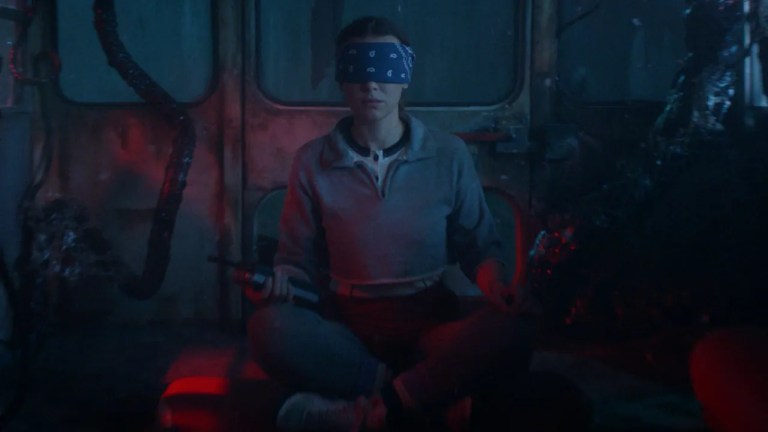
‘You’: 10 Moments Joe Goldberg Was Surprisingly Relatable (Despite Being a Stalker)
From overthinking texts to struggling with small talk, these You moments remind us that even TV’s creepiest antihero has a surprisingly human side.
By ![]() Mishal Zafar
Mishal Zafar
Joe Goldberg might be a stalker, manipulator, and murderer, but every so often, he does something that feels oddly relatable. From overthinking texts to struggling with small talk, these You moments remind us that even TV’s creepiest antihero has a surprisingly human side.
Joe Goldberg is undoubtedly a deeply troubled character. He’s a stalker and master manipulator, and of course, a serial killer. Yet there are some moments in Netflix’s You where we can’t help but see a little bit of ourselves in him. Joe’s subtle, relatable traits remind us that he — despite all his dark flaws — is still human. So, here are ten times when Joe Goldberg was oddly relatable, even if we’d never admit it out loud.
His love for books
We can all agree that Joe’s passion for literature is pretty endearing. The way his eyes light up when he talks about his favorite novels and recommendations gives total book nerd energy. Who hasn’t fantasized about working in a cozy bookstore, surrounded by the smell of old pages? His dedication to preserving rare books and his genuine excitement when discussing literature with others is something lots of bookworms can relate to. Perhaps almost enough to make you forget he’s using that knowledge for nefarious purposes… almost.
Awkward small talk struggles
Remember when Joe tries to chat with Love’s friends and completely bombs? We’ve all been there. Whether at a party full of strangers or trying to make small talk at a work event, those painfully awkward moments are all too familiar. Joe’s desperate attempts to blend in are cringe-worthy, but also, we’ve all experienced that internal panic of trying to seem “normal.” It’s like watching a slow-motion car crash — you can’t look away because you’ve been there, too.
His inner monologue of judgment
No one can defend Joe’s actions. But his snarky inner thoughts can be a little too relatable. We’ve all had those moments of silently judging someone’s social media habits or life choices. Joe’s sharp observations about the absurdities of modern life often have us nodding along, even as we’re horrified by what he does with those thoughts.
Overthinking text messages
Sure, Joe’s obsessive analysis of every word, punctuation mark, and response time in his text conversations is extreme — but who hasn’t stared at their phone, agonizing over the perfect reply? That “…” bubble can be psychological warfare and Joe’s anxiety about it is painfully relatable. His spiral into over-analyzing every interaction is like our own texting neuroses on steroids — both uncomfortably familiar and a bit reassuring.
Dealing with annoying neighbors
When Joe has to deal with his loud, inconsiderate neighbors in Season 3, it’s hard not to sympathize. We’ve all had that one neighbor who doesn’t seem to grasp basic noise etiquette. Joe’s frustration (before it takes a violent turn) is something any city dweller can relate to, especially his initial attempts at being polite. His dreams of peace and quiet are all too familiar to anyone who’s ever lived in an apartment with thin walls.
Social media stalking
It’s uncomfortable to admit, but we’ve all gone down the rabbit hole of someone’s social media. Joe takes it to a criminal level, but that initial curiosity? Yeah, we’ve all been there. In the age of digital footprints, it’s easy to find yourself deep in someone’s Instagram, wondering how you ended up three years back. Joe’s ability to piece together someone’s life online is a dark mirror to our own innocent scrolling habits.
Imposter syndrome at work
When Joe starts his new job at Anavrin, he immediately feels overwhelmed — and honestly, who hasn’t been there? Starting a new job or taking on a big responsibility can really make you feel like you’re just faking it. Joe’s constant worry about not measuring up is something most of us have felt at one point or another—his attempts to “fake it till you make it” while quietly panicking about getting found out hit a little too close to home. It’s a reminder that even someone as confident (or delusional) as Joe can struggle with self-doubt.
Trying to impress the parents
Joe’s attempts to charm Love’s family, especially her mom, are hilariously awkward. Who hasn’t put on their best behavior to win over a partner’s parents? While Joe’s desperation for acceptance is pretty extreme, the core feeling hits close to home. He overanalyzes every interaction and tries so hard to say the right thing to make a good impression — something we’ve all been through. His inner dialogue during these scenes, full of second-guessing and anxiety, feels like an exaggerated version of the insecurities we all deal with when meeting someone important.
The fantasy of a fresh start
Every time Joe moves to a new city, he imagines reinventing himself. While we don’t have his sinister reasons, the idea of starting fresh somewhere new, and becoming a better version of ourselves, is a fantasy many of us share. Joe’s optimism about new beginnings — before reality crashes in — captures that hopeful desire for transformation. It’s like telling ourselves, “This time will be different!”
Protective instincts gone overboard
Joe’s urge to protect the people he cares about is human, even if his methods are completely deranged. The instinct to shield loved ones from harm is understandable, even if we’d never go to Joe’s extremes. His internal justifications, always framed as “for the greater good,” are a twisted version of the rationalizations we all make. It’s a reminder of how easily we can justify questionable behavior when we think we’re acting out of love.











